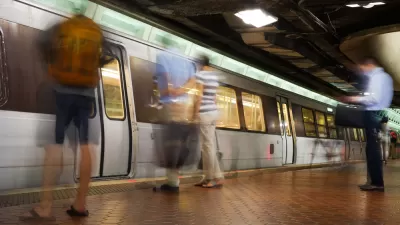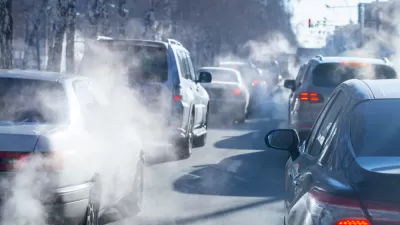Observers express cautious optimism as countries come together on climate goals, but developing nations say they need more support to mitigate the impacts of climate change already in progress.

David Knowles and Ben Adler describe some key takeaways from the COP26 climate conference, which COP26 President Alok Sharma called a "fragile win" for countries seeking to mitigate climate change and slow global warming.
Activists express concern about the nonbinding nature of the pledges made at the conference and the revelation that some countries have been misreporting their emissions data, throwing reductions goals into question.
Developing nations and activists also remain concerned that climate finance is disproportionately tilted toward measures to help developing nations lower emissions — something that most benefits rich countries, since it lowers climate change — and not for preventing, or simply being reimbursed for damage from climate change impacts that are already happening or will be soon.
Yet despite the lack of an enforcement mechanism, Knowles and Adler write that advocates remain hopeful that the conference yielded some promising results that could move the needle on reducing greenhouse gas emissions and keeping global warming below 1.5 degrees Celsius, with over 130 countries pledging to reach net-zero emissions by 2050. Some countries signed onto 'side deal' agreements to cooperate on climate change goals, while all participants agreed that eliminating fossil fuels and ending deforestation should be at the forefront of their efforts. The conference also established rules for international carbon markets that should close loopholes and implement more rigorous measurement mechanisms.
FULL STORY: 5 takeaways from the Glasgow climate change conference

Maui's Vacation Rental Debate Turns Ugly
Verbal attacks, misinformation campaigns and fistfights plague a high-stakes debate to convert thousands of vacation rentals into long-term housing.

Planetizen Federal Action Tracker
A weekly monitor of how Trump’s orders and actions are impacting planners and planning in America.

In Urban Planning, AI Prompting Could be the New Design Thinking
Creativity has long been key to great urban design. What if we see AI as our new creative partner?

Portland Raises Parking Fees to Pay for Street Maintenance
The city is struggling to bridge a massive budget gap at the Bureau of Transportation, which largely depleted its reserves during the Civd-19 pandemic.

Spokane Mayor Introduces Housing Reforms Package
Mayor Lisa Brown’s proposals include deferring or waiving some development fees to encourage more affordable housing development.

Houston Mayor Kills Another Bike Lane
The mayor rejected a proposed bike lane in the Montrose district in keeping with his pledge to maintain car lanes.
Urban Design for Planners 1: Software Tools
This six-course series explores essential urban design concepts using open source software and equips planners with the tools they need to participate fully in the urban design process.
Planning for Universal Design
Learn the tools for implementing Universal Design in planning regulations.
Gallatin County Department of Planning & Community Development
Heyer Gruel & Associates PA
JM Goldson LLC
City of Camden Redevelopment Agency
City of Astoria
Transportation Research & Education Center (TREC) at Portland State University
Jefferson Parish Government
Camden Redevelopment Agency
City of Claremont





























